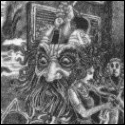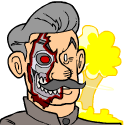|
Hey guys had to drop the game because of work/life hopefully I can rejoin in a couple weeks when tjings die down
|
| # ? Dec 9, 2012 01:29 |
|
Summer 1793 - Turn 8 FRENCH PRESIDENTIAL ELECTION, 1793 The French Election of 1793 is the first national election ever to be decided by popular vote. In the aftermath of America’s collapse, there is a certain skepticism within France about the long term stability of democratic nations. Nonetheless, the French departments put up polling booths and set up temporary offices for vote counting. June arrives and the polling booths are overwhelmed. Although this initially appears to be a sign of overwhelming turnout, later estimates will show only about 48.7% of the national population participating. The reasons for this vary from region to region: corruption, an inability to get to the polling booths, a shortage of ballots, irregular voting times, occupation, lack of interest, and protest. The low turnout will serve as a way to undermine the victor’s mandate and promote opposition against the government. None of the candidates are popular by any means. As the votes are tallied, it becomes very apparent how polarized France is. In most departments, each candidate and several write-ins have received substantial support. There are no landslides, except in Paris where city leaders have ensured their citizenry have voted for the right people. The difference between success and failure are fractions of a percentage point. Saint-Just pushes for Fouche, while Robespierre instructs his followers not to vote for anyone but Fouche or de Sade. After about a month and a half of counting, the picture becomes more apparent. Louis Philippe has gained a majority of his support from Aquitaine, Poitou Charentes and Alsace-Lorraine, the former strongholds of the Feuillant Party. His support elsewhere has been ruined, however, by rumors of his demise. The Jacobins are slightly more stable, dominating by large margins around Paris and in urban areas. His downfall is a lack of notability outside Paris itself. Very few know him and Joseph Fouche seems little more than a generic Jacobin. De Sade has dominated in Normandy and southern France. His support in Normandy, however, may be because of the overt presence of his forces there. Fear is a powerful motivator. The many radical candidates make the results hard to predict.  Grey is occupied, Orange is De Sade, Red is Fouche, Purple is Louis Phillipe, Yellow is Marriane, Pink is Napoleon, Green is Tuffin, Blue is Charles Hector, and light blue is the Pope The election results finally arrive by the beginning of May. By a margin of .6%, Joseph Fouche has won France’s first ever Presidential election. De Sade has gotten a close second. Trailing him by 1.3% is Louis Philippe, who has performed admirably despite sabotage. Trailing them by significant margins are: Marianne of France, Napoleon and Father Roux. Pope Pius IV is the only write-in candidate to receive a plurality of a department, Avignon. Despite achieving a plurality of votes, Joseph Fouche’s victory seems tenuous at best. After all, the current constitution requires a candidate majority of votes to become President. In spite of all their campaign speeches and promises, every candidate is incredibly unpopular. Some argue there should be a runoff election. LEGISLATIVE NEWS: - As his first act as president, Fouche appoints de Gerbey as Minister of War. This gives him command over the distribution centers from Paris - and control of the mobilization structure. - The Sisters of Charity Act and the Just Elections Act both pass. The Sisters of Charity Act in particular is notable, as it establishes a secular organization dedicated to aiding the sick and wounded. Without funding, it is still little more than a pretty name, but if resources could be gathered it might well be yet another lasting legacy of the revolution. STRATEGIC COMMAND: - 30,000 fresh conscripts are sent to the Army of the Center, led by General de Gerbey and brought from Paris. The remainder are unable to be recruited due to certain “problems” within the mobilization structure, many of whom were appointed personally by Lafayette. This largely brings the first levee of the French Revolution to an end. Whether it would be the last remains to be seen. Army of the Alps - 67512 men under Michel Ney advance further into northern Italy, going largely unopposed as they cross the border into the theoretically neutral Republic of Genoa - taking the route along the coast and seizing those villages he crosses. He hears word of an approaching Austrian army even as his forces set up camp around the gates of Turin, the King of Sardinia having abandoned his subjects to their fate. The soldiers within refuse to yield, however, and take numerous shots at the army gathered outside. The Austrians will likely arrive by fall, leading a vast coalition army composed of all the Italian states. - Meanwhile, the independent Savoyard Republic is established in those territories Ney conquers on his way to Turin, including from the mercantile Republic of Genoa, which is now confined to the city of Genoa itself. Sporadic uprisings occur within the walls of the city, demanding integration with the Savoyard Republic. Army of the North - Daendals is given command of 15,000 infantry from the Army of the North, to do with as he sees fit. He operates from Brussels, for the time being. - Military control is established by the French government over all strategic towns and forts in Belgium. Men take up defensive positions along the eastern and northern borders, preparing for a fall offensive by the coalition forces. - An interim, local government is established in the conquered regions of the former Austrian Netherlands. The men chosen are, as is the case in Italy, largely well-educated and secular French speakers. While they have the authority to make some decisions for the people, authority ultimately rests in the hands of Massena, who reserves the right to veto any decision “detrimental to the war effort”. - Some 5,000 new cavalrymen begin training under the Army of the North thanks to seizures of the pastures of Wallonia. The bulk of these new recruits come from Belgium itself, many of them eager young men willing to fight for their freedom - and they truly believe this is a war of freedom, as do many of the oppressed people throughout Europe. - Massena begins building up a large store of supplies, presumably for an offensive. Army of the Rhine - The Austrians attack over the Rhine in a concerted wave, and with de Tillières’ sudden resignation, the command structure in the region is completely unable to handle the hard strike at its interior. This deals the revolutionary army its first serious defeat and pushes the Army of the Rhine back to Toul. Some 4,300 men are lost by the French, with the Austrians suffering a loss of 1,510. The Austrians establish preliminary control over the Alsace, and it appears that they mean to bypass Metz and head straight for Paris. DOMESTIC NEWS - Fouche decides to celebrate his recent electoral victory by investing in a number of businesses across Paris, libraries principally among them. His overall lack of personal wealth prevents these from being substantial contributions, but the bourgeois suspect the President may know something they do not and follow his money trail. The Paris economy improves somewhat, as does literacy. - Simultaneously, comics portraying the Bretons as a misguided people being exploited by Cadoudal and Tuffin. Under their yoke, Brittany has been forced to separate from their rightful and just defenders, the French. The effort is appreciated by some Bretons but France by and large has learned to disregard the Bretons as traitors to the cause. They assume Fouche is trying to obscure his own nationality to prevent electoral challenges. - The British agree to hand Lafayette over to the Bretons. While he is being transported ashore, however, a series of convenient - and many say not so coincidental - accidents permit his escape on a British rowboat. His guards do not even attempt to give chase, allowing him to land ashore somewhere along the western coast of the Vendee. The Butcher of Brittany is loose, and many suspect the British let him get away, perhaps hoping his presence would provoke instability in France. - Lafayette soon arrives with the Army of the Center, calling his men to his side despite the disastrous Breton campaign. The men had been expecting his return regardless, and most follow him out of sheer habit if nothing else. - Not long afterwards, the Marquis de Sade arrives and decides to have his small band of men follow the army around. Some men whisper rumors of the demon in their midsts. Some of these men are later seen meeting with a ship flying the Union Jack, where arms and supplies are delivered. - Word of Lafayette’s escape is carried throughout the republic by printed pamphlets and other propaganda, playing it up as a patriotic escape from the clutches of the tyrannical British. His popularity sees a noted increase in the northern regions, even as news spreads among his soldiers that Lafayette is planning to march on Paris to arrest and destroy the radical government there. Many in the Army of the Center, especially the fresh recruits, are openly radical, and dissent grows. - A man garbed in a dark, hooded cloak offers - quite publicly - the release of Louis XVII so long as Lafayette would be willing to pay a hefty ransom. He implies that the King has left from a ship in Marseilles with von Bachmann and twenty rough and rowdy men. Not long afterwards, an “Indian” from the “Whodathunkit” tribe approaches de Sade, pledging his services to the man. He is dressed in a tattered Swiss Guard’s uniform, and many openly suspect the man to be von Bachmann. - Lafayette orders his army to march on Paris, over the recommendations of his officers. He will destroy the radicals or die trying. The irony is not lost on some in Paris, who begin to call Lafayette “Rochambeau come again”. The Bretons celebrate their reprieve from both de Sade and Lafayette. - de Gerbey meets the bulk of Lafayette’s forces somewhere outside Blois. With him are 30,000 men, untrained and overeager boys. Lafayette’s soldiers, all 54,800 of them, are wholly radical, excepting his National Guard, and many of them hold more loyalty to the elected government in Paris than they do the general - especially after the disastrous Breton campaign. Thus, both sides are suffering from near crippling problems... and both sides seem to be led by generals intent on seizing command. - Lafayette orders a charge without hesitation, the order taken up by de Sade’s mad and raving cambions. They burst from the ranks and charge without discipline, causing mass panic among de Gerbey’s own soldiers - most of whom struggle to maintain their line. Some throw down their weapons and run. Those that stand fast, however, find they easily slaughter the bandit’s men after a few successful volleys. - Lafayette’s soldiers, however, advance in the confusion, and Lafayette’s lancers hit de Gerbey in the side, completely shattering his line. Then, and just as suddenly, the third and eighth regiments of the Army of the Center switch sides at the height of the battle, just as it looks as if Lafayette had finally seized the advantage. Mass confusion erupts. No one can tell friend from foe, and the organized lines collapse and give way to a brutal melee, which soon in turn gives way to slaughter... somewhat encouraged by the presence of de Sade. - The cry goes up across the blood-soaked plain. Lafayette has been beaten, his forces disintegrating as their morale finally breaks - most of them joining with the men they had just finished killing. The fighting stops as abruptly as it had began, with thousands laying dead on the field. All told, some 14,000 men have been purged from the French Army as the sun finally sets in the west. - The victory is de Gerbey’s first, but it has come at a great cost. In the confusion, he has been shot in the right knee, and his wound has grown heavily infected. The general is now relegated to a sickbed, where he has no recourse to real medical care. Many of his officers are unsure if he will even live to taste the glory of his victory. - Lafayette, on the other hand, has escaped with his life. He is last seen booking passage on a ship to Jeffersonian Virginia, where he might yet help reunite a people divided - just not his own. - Lacombe offers a sizable reward to a certain notable detective in Paris if he might track down the source of occult events in the city... whether he takes her up on the offer or not is anyone’s guess. She also surrounds herself with a group of fighting men loyal to her, an escort or bodyguard. - Women are seen attending de Sade and his men, dressing them up as demons to frighten their enemies. When word of de Sade’s demon army reaches Brittany, many peasants lock their doors. According to leaked pamphlets in Paris, these women were sent by Claire Lacombe. Rumors of an affair abound. - A general lack of wealth - some say due to the drying up of a certain source - prevents Olympe de Gouges from distributing much meaningful aid to the people of Paris. - The Order of the Shield of St. Jeanne is established, an order recognized by none beyond the private circle of Madame de Gouges. Loyal members of the Liberation Army are appointed to leadership positions there, and together they perform plays across the southern countryside. Local shrines devoted to the saint spring up across Occitania, with her cult growing in popularity even in the face of growing anti-clericalism throughout the rest of the country. The bob haircut spreads in popularity as well. - The University is attacked by a mob of radicals after Saint-Just condemns their so-called gnostic department in a fiery speech, claiming it is the last vestige of reactionary thought in Paris. He is aided in this endeavor by an exposé published by Hebert, which puts both the radical republicans and the ultra-leftists on the same side. They soon seize the compounds and murder not just Berbiguier - who seems quite surprised by the massive horde tearing him limb from limb - but many of his close associates. Thus ends the demonologist. - Attempts to steer this mob away to attack the philosophes by implanted rabble rousers in the crowd fail utterly, with Condorcet and his fellows widely seen as a fairly amenable group of freethinkers. - An event later identified as St. Vitus' Dance erupts in the Cour des Miracles, a strange fit of dancing that takes the populace by storm. Most are confused as to its nature, but it becomes clear later in the month, when its dark and demonic origins are revealed. Hundreds of bodies are found by local police, their insides contorted. While some outspoken demonstrators call for the murder of those responsible, claiming that the grain was poisoned by Olympe de Gouges and her Society of the Friends of Truth, but it largely fizzles out after the heavy police concentration in the slums breaks up the movement. - Members of the Congregation of the Last Supper of Cassius attempt (largely in vain) to attract people to their cause, as most of Paris is riding a wave of anticlericalism egged on by the Montagnards. - The Ministry of Justice buys a tiger from the Sultan of Morocco and manages to transport it clandestinely past the British blockade. They later unleash it on the sewers of Paris, where it feasts upon the bodies of many different spies and makes the sewers unsafe to operate in for the foreseeable future. The “Tiger Affair” begins to be ridiculed in periodicals across Britain, wondering how such a creature could pass through the wooden wall. - Several men are arrested, having been caught attempting to stuff ballot boxes in a town just outside of Picardy. They refuse to reveal the identity of their employers. - The figure of Father Roux washes up on the banks of the Seine - believed dead by large segments of the Parisian population - standing before them. Many immediately run to him after his presence is announced from an article of Le Père Duchesne. He ascends the pedestal and announces an end to the monarchy of Louis Philippe and an end to the moderatism of this so-called revolution. He calls for a collectivized state as the martyred Babeuf envisioned. He declares the resumption of the Paris Commune and has his followers, mostly students from the university, set up a barricade around the grounds of the old Tuileries palace, daring Fouche’s government to stop them. They are fairly small in number, with most of the momentum still with the radical Jacobins under Saint-Just, but they may still yet bring more to their banner... - Robespierre, meanwhile, is busy scouting out the active leaders of the mobs. He brings some of the more Jacobin-leaning ones under his banner, and they serve under the Committee of Public Safety, which remains in Robespierre’s hands. He also kindly sends some men to ensure Fouche’s protection - these are men of private hire, thugs and the like. Further, he surrounds himself with men loyal to him personally. In these chaotic times, one can never be too careful... - Meanwhile, the ships sent after Roux down the Seine are intercepted by tolmen, who board the ships and arrest the agitators immediately. The massive gunpowder stores in the ships are then sent to the Army of the North. - "The Inspector: or Hubris's Reward" is published by Saint-Just in the midst of the Summer heat. It is about a police inspector from the old regime, one who boasts of his bravery and cleverness and constantly harasses the people. Then, when bandits threaten the town, the government sends him to stop them. Unfortunately, his cowardice and stupidity shows through, and he is captured. The blatant comparison to Lafayette brings down the general’s popularity. BRETON NEWS: - Georges Cadoudal disappears one night late in the evening, after heading to a nearby chapel to pray. The man would never have abandoned the Breton cause, but likewise they can not find his body anywhere... legends begin circulating of the man almost as soon as he is gone. Some believe he became a monk and retired to a hermitage somewhere along the coast, others that he suffered a heart attack and passed away, others that he faded away into a mountain - to return when his people need him most. - Tuffin declares that all towns that flew the black and white flag are to be honored, and those that failed to do so should be held in disgrace. Men and women from both towns suffered greatly under Lafayette's brutal purge, and while morale in the former increases greatly, opinions of the government in the latter plummet. - To replace him, Tuffin appoints himself as Veur Chancellor, and with a Breton victory in the war looking more and more likely, announces that Brittany shall henceforth be known as the Kingdom of Brittany, with Queen Mari Tereza I as its sovereign. He also suggests that the Queen name him Duke of Brittany, though this will require her to actually take steps to that effect. - A National Bank is established in Nantes, heavily modeled after the Bank of England. While it is to have affiliate branches in every Breton region, currently there are not enough resources to accomplish that. A reserve system is established - most of the reserve being in pounds, from the vast amount of British aid dumped on the country - which de facto links the florin to the British pound. - The Breton tax structure is in shambles, but de Bonteville Hay manages to make some sizable improvements. More successes like this and he should see an increase in income. - The Breton army takes up posts along their border forts, which have been renovated and are named the “Rochambeau line” after the French general who fought for the country so admirably. Tuffin hopes they will serve as a symbol of French and Breton unity in the independent kingdom. Similarly, a statue of Cadoudal is commissioned in the center of Naoned - the region around it becoming known as Cadoudal Square. - Queen Mari Tereza visits the villages Lafayette struck in his rampage, over the recommendations of her advisors who warn that de Sade may attack at any time. She wins widespread applause from the Breton people as she hands out alms and prays over the bodies of the dead, many of whom are being dragged slowly from mass graves. - A plebiscite is held on the flag of Brittany. With invasion always looming over the horizon, many see it as a silly diversion, and with many in the nobility very, very worried about the seeming republicanism of the vote. They allow it to proceed nonetheless, largely because they are in gratitude to Tuffin for independence in the first place, and it actually proves to be a somewhat relieving exercise in many of the tense Breton towns as people fight for hours on end about which flag is best. In the end, they pick the new flag of the steward’s design. - In early July, Louis Stanislas Xavier calls together his court of emigres in Nantes to make an announcement. The men seat themselves and murmur quietly, wondering the purpose of this sudden meeting. Their discussion is silenced by the sudden sound of trumpets and appearance of the Regent at the door. Smiling, he declares King Louis XVII dead. He has been missing for over a year now and France cannot be paralyzed with indecision. He orders a massive coronation ceremony to take place. - As preparations begin, however, Europe is shaken by news in Paris. A strange cloaked man with an accent appears at the National Guard headquarters with information on the uncrowned King Louis XVII. According to the visitor, the young prince boarded a ship in Marseille with Major Karl Josef von Bachmann and twenty other men. The possibility the child may be alive is a double-edged sword, increasing royalist support somewhat but significantly undermining Xavier’s claim to the throne. - Nonetheless, the ceremony continues. With nearly all of Nantes in presence, Louis Stanislas Xavier bows before the Bishop of Nantes, who then proceeds to play a crown upon his head. The Regent has become the King! All hail King Louis XVIII, By the Grace of God, Most Christian King of France and Navarre; Count of Provence, Forcalquier and the lands adjacent; of Viennois, Count of Valentinois and of Diois; Defender of the Faith; Breton Elector. The ceremony is filled with pomp and revelry. Thousands of francs must have gone toward this celebration. - Though a crown rests firmly upon his head, King Louis XVIII’s throne is unsteady. With the recent news of the Dauphin’s survival, large parts of Brittany do not consider him King at all. There is also the issue of opportunism and the suspicious nature of King Louis XVI’s death. No one is yet willing to voice these concerns openly to the former Regent but they remain dire problems nonetheless. - One day and a hangover later, King Louis XVIII orders his L’Armée des Princes be renamed to the French Catholic and Royal Army. He delivers a speech how he is fighting for France and God now, not just the nobles and emigres. His popularity among the lower classes increase but noble approval declines somewhat. - An outbreak of venereal diseases among the rank and file Bretons seems to follow immediately after the arrival of dozens of prostitutes into the larger army camps, indicative of the army’s lax discipline. Some are given mercy killings to spare them their pain. Those women caught by more scrupulous officers claim they were hired by a “Edas Ed” for the Bretons’ pleasure. Some suggest that the military ban prostitution altogether. - Taking his new army, Stanislas orders a march for Tours. As the army departs, the newly crowned King recruits priests and sympathetic peasants into his rank. The Royal Army takes all the royalists it can get and attempts to integrate them into their rank even though the lack of training has made them unruly. This continues as the army leaves Brittany and makes its way for Tours. - The British Expeditionary Force withdraws from Brittany. Reports indicate that they are headed to reinforce the Dutch Republic, but the simultaneous departure of both the royalists and the British leads many Bretons to fear that they are being abandoned to the whims of the French... or worse, de Sade. - With British assistance, the Bretons begin construction on a primitive semaphore network near the border to provide advanced warning of any incoming attacks. These are intended to help spread word in the event of an assault on the border - unfortunately, sabotage strikes hard at the project, and it is ultimately nothing but a waste of resources as several construction sites go up in flames. - Another season of investment must be made by the Bretons before artillery manufactures can be constructed. - Aimé Picquet du Boisguy assumes control over the Breton militia, using the capture of the Butcher as a rallying cry for his new men. Few additional men flock to his banner, however, as news of Lafayette’s escape makes the victory a hollow one. GALLIC NEWS: - Napoleon is shocked when he hears from a pair of fur traders that Brissot has actively been encouraging the Indians of the Great Lakes region to rebuke their treaties of alliance with Gaule and instead form their own separatist state in the north. Rumors soon spread throughout New Orleans that Brissot is a British agent, and the freedmen of the city are his loyal servants. They are seen purchasing guns and a large quantity of slaves from neighboring Georgia. - The British announce that they will permit those in French-occupied territories to escape to Gaule. Some take them up on the offer, landing in New Orleans late in the Summer and integrating - with some difficulty - into the society there. - Napoleon collects large sums of money from tariffs on trade with the British. This upsets the upper class in New Orleans, many of whom never wanted this independence business in the first place and hate trading with the very men who expelled them from Acadia. - Napoleon’s terms for a ceasefire are immediately accepted by the Spanish after heavily applied British pressure. Tejas becomes a Gallic protectorate, nominally under the suzerainty of the New Orleans but in reality a largely clerical state administered from the missions. Napoleon forces the missions to begin teaching French to their native clientele and to focus their curriculum on the means of civilization, as well as appointing a French “resident” in San Antonio, but otherwise leaves the region alone. - Burr’s ego is partially appeased by the income sent his way by Napoleon as thanks for the assistance against Spain. Still, he is hesitant to part with Florida - especially to a native state. After some tense negotiations, he agrees to cede the region for Napoleon to do with as he please, recognizing that the general’s army is far larger and better trained than his... though his eyes seem to forever stray to the map during the meeting sessions. HAITIAN NEWS: - A large investment in infrastructure and manufacturing, much of it from the Kingdom of Great Britain, jump starts the Haitian economy. This is particularly evident in Port-au-Prince, where abandoned French warehouses are emptied and their interior replaced with Hector’s steam engines. Much of Haiti’s budget has gone toward making Admiral Hector’s vision a reality. The maintenance and safety of these machines are placed under a new government agency called the Haitian Industrial Cooperative. - One by one, each of these machines whir to life. Charles Hector and his inspectors watch with shallow breath as the different pieces lock together and begin to move. Hector’s own double action piston, his own invention, moves faster and faster. The improvements appear to have been a success! The Watt-Hector Steam Engines can be connected to any device for limited power. - Following the success of the Haitian Industrial Cooperative, Toussaint endeavors to further develop Haiti’s budding bureaucracy. He creates the Haiti Sugar Organization, an organization whose mission is to monitor and keep track of plantation production as well as keep census records on the number of plantations within Haiti. As with all new nations lacking in developed infrastructure, the results of these efforts will take some time. Early polling seems to suggest significant inefficiency, however, with many former slaves not working the land. - Unhappy with these results, Touissant orders the Haiti Sugar Organization to promote industrial opportunities to unproductive plantation workers. Haiti, however, is a mainly rural nation and many of these individuals have never been outside their plantation, let alone to Port-au-Prince. Travel is difficult, if not impossible. Only a handful of former workers arrive, leaving the government deeply unsatisfied and most Watt-Hector Steam Engines gathering dust. - Charles Hector softens this blow by rounding up the poor and destitute of Port-au-Prince to work in his factories. He promises good pay and a pension, despite not having the resources to supply these. They believe him and begin work, though it mangles their hands. The Haitian Industrial Collective Co-ordinated Union Program is established under Hector’s leadership. - General Toussaint directs his attentions to the courts and tribunals that have sprung up across the nation. Although popular among the lower classes for the harsh punishments they dole out to collaborators, they are severely lacking in justice and order. Toussaint introduces some oversight to the Haitian court system. Dozens of officials are either removed from office after being found grossly incompetent or quit in anticipation of the ensuing investigations. Corruption is decreased, but at the cost of expediency and the wait for court is becoming long. There are extremely few lawyers or educators among the freedmen. - A sudden build-up of fortifications begin around important plantations and towns within Haiti. Soldiers arrive to garrison these quickly constructed defenses. This largely confirms what many have suspected, Haiti is marching for war. - Baron Samedi leads another assault into Spanish territory, but it seems the colonial government there has been preparing for the assault. About 300 Spaniards on horseback ride to meet Les Zombies as they plunder a border plantation. The zombies suddenly abandon their act and are forced to scatter. 184 zombies are trampled or skewered by the Spanish forces while another 62 are captured. The highly guerrilla nature of the force prevents mass casualties. Baron Samedi disappears back into the night, just in time for Spanish forces to cross the border. The Spanish-Haitian War has begun. - The plantation of L'Etang de Riquelle is captured by Spain. Fifteen freedmen are hung to send a ‘message’ to Toussaint. Aside from a condemnation from the Bishop of Santo Domingo, Fernando del Portillo y Torres, few take notice of the action beyond the slaves themselves. - Charles Hector is undeterred by this news and continues building the University of Les Angles using the expanded education budget. He hires a limited staff, made up of promising Haitian scholars and Swedish scientists who have been sent by the government. A scholarship program is also established, allowing even the poor of Haiti an opportunity at education. Young men seem more interested in picking up the musket than the textbook though and enrollment remains low. - The Swedish government is granted the design plans for the Watt-Hector Steam Engine, as thanks for their support. Swedish funding is sent to promote Haitian culture and education. Relations improve substantially. - For the ninth month in a row, Charles Hector fails to emerge from his laboratory with a new invention. Rumor has it though he is trying to do something with mechanizing sugar processing. FOREIGN NEWS: - The Duchy of Milan, Republic of Genoa, Duchy of Parma, Duchy of Modena, Republic of Lucca, Grand Duchy of Tuscany, Kingdom of Sicily and Republic of Ragusa declare war following continued French advance into Italy. The Pope has not authorized a declaration of war, but the army has begun reforming and reorganizing itself in preparation for battle. - The Russian Empire, in response to repeated grievances and with the division of Poland into two halves - with large parts going to the Prussians - declares war against the Ottoman Empire. 25,000 Russian troops begin their march into Dobruja. - A push for constitutional reforms by the Prussian ambassador gets him harshly rebuked by the administration. They are fighting a war over this sort of thing. His attempt to get a regiment of Prussian riflemen, or “Jaegers”, is successful, however, and the Prussian government should finish training in a few months’ time. Prussia refuses to sign any sort of trade agreement with anyone until the war reaches a conclusion. - Swedish government officials approach universities across Europe with hope of expanding their academic knowledge. The best results come from England and Denmark, of which Sweden has extremely good relations. The University of Stockholm establishes a partnership with the University of Oxford. Professors are siphoned back and forth, sharing information and technology. - After much discussion, the Swedish Ambassador to Haiti secures purchase of a Hector-Watt Steam Engine, albeit at a steep price. The technology will go to good use in Sweden. - Rich and affluent Parisians connected with the Old Regime begin to disappear. Where they have gone is not certain, but their homes are found emptied of all possessions. This suggests flight rather than kidnapping. - Exposed! Swedish ships are accidentally stopped by the British while traveling to Brittany. The sailors uncover large amounts of silver, clearly intended to fund the Breton government. Although relations with Sweden drop somewhat, France has larger enemies to worry about. - The Swedish Ambassador to France is sickened by this latest declaration of war, being a man of peace himself. He puts pen to paper and sends a plea to the international community. If peace is not possible, then let us at least care for the victims of war. The Humanitarian Society of Eir is founded in Stockholm, Sweden by intellectuals and aristocrats. The organization endeavors to treat all those affected by war, regardless of their political affiliation. It requests permission to operate in Brittany and France from each government. - New England signs a trade agreement with the British, with many of the Federalists in the region pushing for a defense treaty with the “mother country”. The President of the “United States” is still hesitant on that matter, however, fearing it may eventually lead to integration with British Canada. If serious conflict arose, however, they might feel more amenable. - Settlers from Connecticut arrive in the Western Reserve, reaffirming New England’s claims to the interior of the Midwest. This outrages Virginia, who threatens military action against New York and Pennsylvania if they cannot stop the Yankees. The threat is largely ignored, Virginia largely unable to exert any significant force outside its borders.
|
| # ? Dec 10, 2012 06:41 |
|
La Nation, la Loi, le Roi- A France NationSim Country: République française (French Republic), established 20th of September 1792 by the ratification of the constitution by the Emergency President of the Legislature and the provisional President of France. Population: 28,000,000 as of the last census (1790) Year: Autumn 1793 (turns represent 3 month seasonal cycles) Metropolitan France 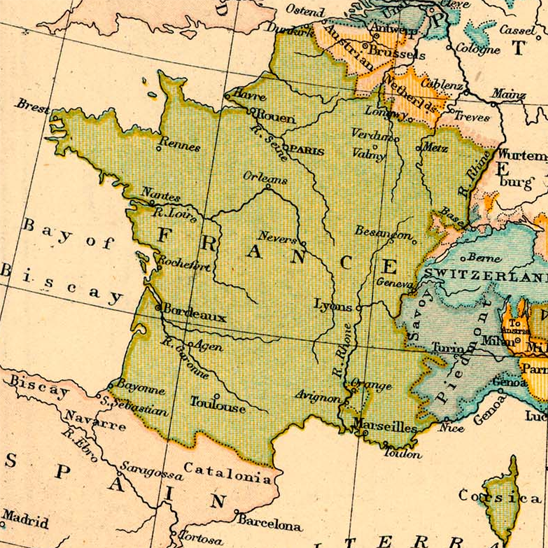 548x548 =Economy= - =Economic Sectors= Agriculture: 83% Manufacturing: 10% Trade: 7% Growth Rate: 0% = Unemployment: 18% =Government= 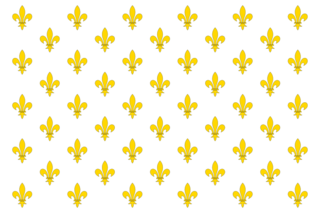 320x213 The Constitution of 1793 is a provisional document, most of it untested. - Popularity: Mediocre System: Unitary Republic  203x250 President: Joseph Fouché/WhitemageofDOOM
Supporters: Bourgeoisie, urban workers, Jacobins  188x250 Prime Minister: Maximilien de Robespierre/sniper4625 National Assembly: 700 Seats (422 Jacobins, 187 Orleanists, 91 Independents) Elections: Members of the National Assembly are elected every year on a national basis. There is one deputy for every 40,000 citizens. President is elected every four years. Suffrage: All men over the age of 21. Pretenders to the throne:  356x599 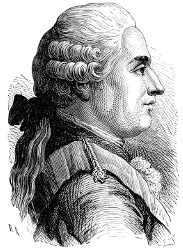 183x250 Legitimist King: Louis XVII de Bourbon (unplayable, presumed dead)
Popularity: Mediocre Supporters: Nobility, Emigres, Moderates Laws of Succession: Agnatic Primogeniture =Foreign Relations= Holy Roman Emperor: War/Bad Prussia: War/Bad Great Britain: War/Very Bad Russia:: Peace/Bad Poland-Lithuania: Peace/Good Spain:: War/Very Bad Sweden: Peace/Bad Denmark-Norway: Peace/Bad Brittany: War/Extremely Bad Portugal: War/Mediocre Sardinia-Piedmont: War/Bad Naples/Sicily: War/Bad Dutch Republic: War/Bad Switzerland: Peace/Mediocre Ottoman Empire: Alliance/Good USA (in New England): Trade Agreement/Mediocre USA (in New York City and New Jersey): Trade Agreement/Extremely Bad USA (in Virginia): Trade Agreement/Poor USA (in South Carolina): Trade Agreement/Good Republic of Vermont: Peace/Neutral Commonwealth of Southern America: Peace/Extremely Good =Cabinet= The choice and dismissal of Ministers pertains solely to the President. The members of the Legislative Assembly may not be appointed. All powers exercised by the President must be approved by at least one other minister before it can take effect. Most minister’s executive privileges have been temporarily suspended. Minister of Foreign Affairs: Vacant (PRESIDENT MUST APPOINT) The Minister of Foreign Affairs is tasked with maintaining relations with foreign nations and the protection of French citizens abroad. Given the sheer number of war declarations coming in daily, he is doing rather poorly. 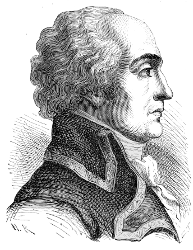 193x250 Minister of War:Général Joseph Marie Servan de Gerbey/A RICH WHITE MAN The Minister of War has total control over the French Army and is responsible for the protection of French border provinces. Given international hostility toward France, the execution of this duty may be difficult. Minister of the Marine: Vacant (PRESIDENT MUST APPOINT) The Minister of the Marine has jurisdiction over all seafaring French vessels and the colonial territories. It is his duty to ensure the protection of trade. 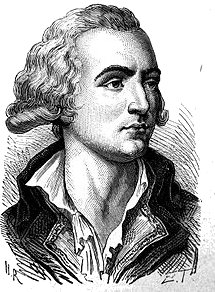 215x292 Minister of Justice: Marguerite-Louis-François Duport-Dutertre/ZearothK (zearothk@trioptimum.com) The Minister of Justice is responsible for all judicial affairs within France and ensuring the rule of law is maintained. Minister of Finances: Vacant (PRESIDENT MUST APPOINT) The Finance Minister is charged with maintaining state finances, agriculture, industry, commerce, roads and estates. Due to the poor state of the French economy, the position is in a state of turmoil and officials here rarely last long. =Factions= 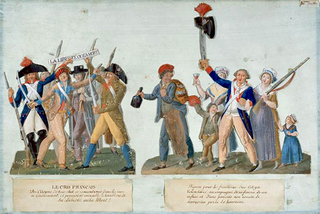 320x214 - Club des Jacobins  237x250 Radical Republican (Montagnard) wing led by Louis Antoine Léon de Saint-Just/Epicurius (epicurius at aol.com). Liberal Republican (Girondin) without leadership, most fled. Faction is predominantly Montagnard. The Jacobins are the radicals of the French Revolution. They now call for increasingly extreme measures, like the abolition of the Catholic Church and the extermination of all enemies of the state. Their headquarters has been destroyed in a mysterious bombing. Represented by the colour red. - Parti Orléanist 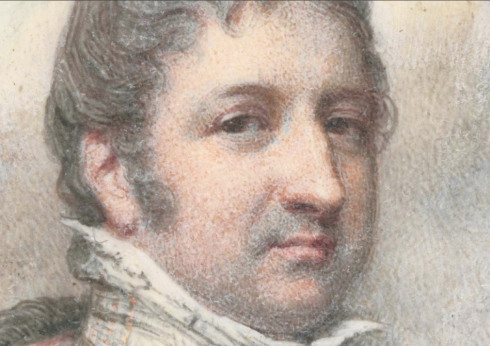 490x346 Moderate Republican. No leadership. In disarray following the defeat of Louis Philippe in the elections, the flight of Lafayette and total Jacobin dominance of the Republican government. Many fear the guillotine. - Monarchistes Français  183x250 Reactionary Monarchist, led by Louis XVIII/Takanago (ktakanago@gmail.com) (OUTLAWED) Although they are not represented in the Legislative Assembly, this group represents an alliance between members of the former aristocracy, who wish to see a return of the absolute monarchy and landed aristocracy, and marginalized minorities like the Bretons who chafe under the centralization of the state. Although many fled following the ratification of the Constitution, those who remain in France have strong funding from outside parties. Now, the monarchists are based primarily around Brittany, though they have substantial support in northwest France. - Les Enragés 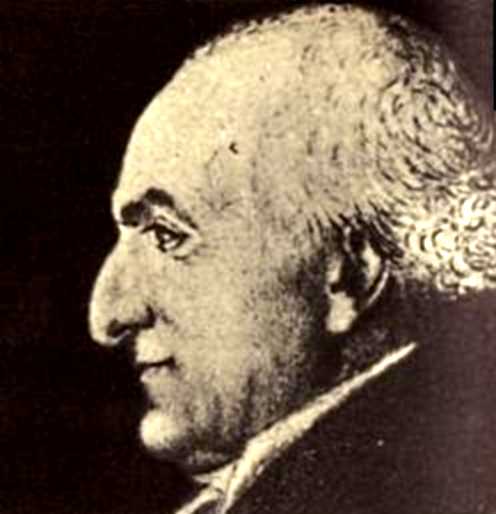 496x514 Babeufist (Populist Left), led by Jacques Roux/Stalingrad (stalingradlenin@gmail.com) The crippling bread prices and a general lack of work in Paris have given some popular support to a movement that might otherwise have been a footnote of history. Even more radically left than the Jacobins, the Enragés rely on the support of the common man and encourage a thoroughly radical revolution. With the death of Babeuf and the betrayal of Madame Gouges, they rely solely on Roux for leadership. Departments: Following the ratification of the French constitution, the provinces of France were destroyed and the lands of the aristocracy dissolved. In their place, the Legislative Assembly established 82 departments. Each department is ruled by an Administrator and receives three representatives in the Legislative Assembly, except Paris which receives only one. =Military= 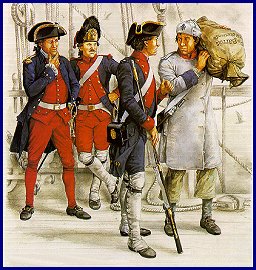 256x270 The French military has initiated major reforms since the establishment of the Republic. Although France still struggles from defections and difficulty training soldiers, these problems are slowly being resolved. At the moment, France’s most pressing concern is the First Coalition who threatens to destroy the nation and its people. Grande Armée de la République  194x250 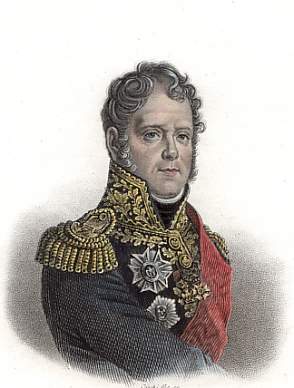 294x388 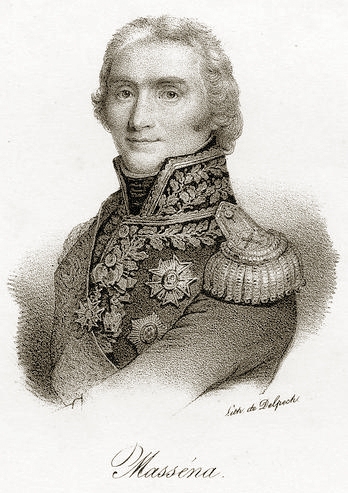 348x493 Maréchal de France: VACANT (President must appoint) Forces: 300,197 soldiers, 16,353 cavaliers, 324 cannons --- l’Armée du Nord [66,723 soldiers, 5,500 cavaliers, 50 cannons. Brussels. Général André Masséna/Viscardus] --- l'Armée du Rhin [44,758 soldiers, 3,612 cavaliers, 50 cannons. Toul. Jean-Baptiste Bernadotte/vacant] --- l’Armée Expéditionnaire [17,345 soldiers, 30 cannons. Gaule. Napoléon Bonaparte/YF-23 (yfaltmiau at hotmail dot com)] --- l’Armée du Centre [70,847 soldiers, 1,000 cavaliers, 24 cannons. Blois. Général Joseph Marie Servan de Gerbey/A RICH WHITE MAN --- l’Armée des Pyrénées [35,000 soldiers, 5,000 cavaliers. Spanish Border. Charles François Dumouriez/vacant] --- l’Armée des Alpes [47,512 soldiers. outside Turin. Général Michel Ney/rakovsky maybe (rakovskymaybe@gmail.com)] French Navy  300x329 Admiral: Joachim Murat/stalin-chan (stalin@c0balt.com) Forces: 66 ships of the line, 61 frigates, 45 corvettes, sizable merchant marine Organization: 2 fleets, several smaller patrols --- Flotte de l’Atlantique [assigned 35 ships of the line, 30 frigates. In port. commanded by Louis Thomas Villaret de Joyeus/vacant] --- Flotte de la Méditerranée [assigned 31 ships of the line, 26 frigates. based in Toulon. commanded by Louis-Armand de Rohan Constantine/vacant] Situation: New command structure, many remaining officers skeptical. Many vessels in disrepair. Swiss Guard  290x385 Oberst: Major Karl Josef von Bachmann/Enjoy (sw_faulty at hotmail dot com) Forces: 130 guardsmen (in prison), 100 guardsmen with the Dauphin Situation: Highly trained, highly effective mercenaries serving as the King’s personal guards. Their forces were shattered by the National Guard in an assault on the Royal Palace. The Swiss government is outraged by the slaughter of their citizens and struggling on how to respond. =Foreign Threats= 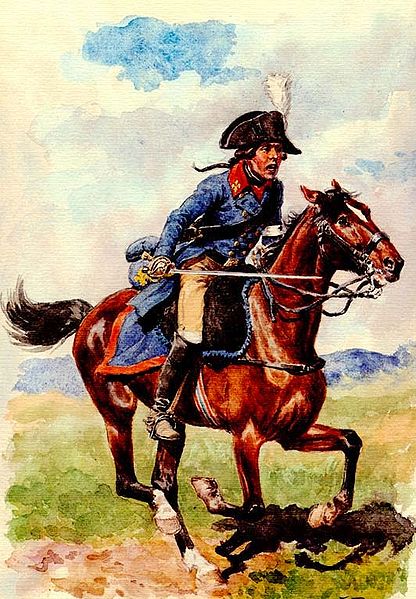 416x599 French Catholic and Royal Army Commander: Louis XVIII, King of France and Navarre Sponsors: Prussia, HRE, Great Britain Forces: 2485 Gallowglass mercenaries, 6717 infantrymen, 1530 cavalrymen and one squadron of hussars Situation: In Brittany. Excellent training, poor morale. Well-armed. Queen’s Association Commander: Various, disorganized Sponsors: Quebecois wealthy, American and British intellectuals Forces: 700 fighters (Montreal), 500 fighters (Philadelphia), 175 fighters (London) Situation: Extremely well-armed and high morale, but non-existent training. ‘Fighters’ consist solely of armchair intellectuals and bored upper class. =Rebellions and Militias= Babeufist Farmer’s Revolutionary Collective Leader: Gaius Gracchus, Tribune of the People/Red Cesar Ideology: Babeufist Popularity: 15% in Picardy Forces: 4301 peasants, 25000 theoretically available for mobilization Situation: Organized following the death of Babeuf and the uncertain future Babeufists face in France. Some support undercut by the Land Reform act. Ar Diebiñ Bretoned Leader: Aimé Picquet du Boisguy Ideology: Breton Nationalism / Conservatism Popularity: 35% in Brittany Forces: 4890 peasants, 40 noblemen Situation: Recently distributed muskets and farming instruments. Aid from unknown source has stopped due to blockade. Some training. Great morale. La Garde Liberatione Leader: Olympe de Gouges Commanders: Olympe de Gouges Ideology: Women’s Liberation Loyalties: Mostly Enragés, with some Jacobin sympathies Popularity: 3% in Marseilles, 1% in Toulon Forces: 387 sans-culottes, 427 “working women” Situation: Volunteer militia formed after the March on the Champs-Élysées, made up of disenfranchised peasants and artisans. After betraying Babeuf, many deserting the organization! La Garde Libre/The Cambions  250x250 Commander: Donatien Alphonse François, Marquis de Sade/Fall Sick and Die (ccferrara@gmail.com) Ideology: Far Left/Anarchism Popularity: 2% in Paris, 10% in Gaule Forces: Unknown Situation: Where are they... ? Normandy... ? Not many are sure, but all tremble in fear. Especially Bretons. Haiti Leaders: Several, in disarray 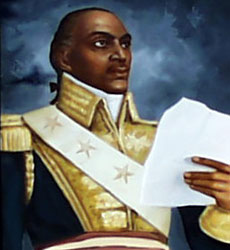 230x250 Commander: Toussaint Louverture/EccoRaven Ideology: Abolitionist Popularity: 85% among black Haitians, no support in Metropolitan France Forces: 28,210 slaves, 3 cannons, 1 mortar Situation: Morale is very high, training is mediocre but improving. Occupying all of Saint-Dominique. Other Important Individuals and Groups: Archdiocese of Paris With the confiscation of church property and the subjugation of the clergy to the state, the influence of the church hierarchy on France is theoretically minimal at best. In reality, however, many voiceless Catholics still place their church first, and no one is in so good a position to take advantage of that trust as the Archbishop of Paris.  173x250 Archbishop: Antoine-Éléonor-Léon Leclerc de Juigné/Cozy Hemp Mines (Cozyhempmines at googlemail) Swedish Embassy to France The Swedes would seemingly be an irrelevant power were it not for their potential to counter the Russian threat to France. 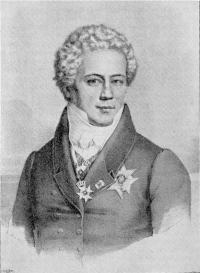 200x273 Ambassador: Gustaf af Wetterstedt/Hutter British Embassy to France Along with setting British foreign policy concerning France, the current ambassador also has a vast amount of personal wealth to draw upon. 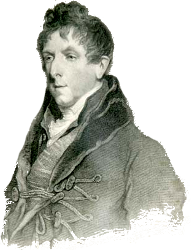 191x250 Ambassador: Duke George Leveson-Gower/Incy (incysa at gmail) Prussian Embassy to France The Prussian ambassador is among the most virulent of enemies of the French state.  191x250 Ambassador: Friedrich-Wilhelm von Franco/Ramba Ral  209x247 Claire Lacombe/Rincewind Noted feminist and playwright, Lacombe is certain to be an entertaining character of the Revolution. 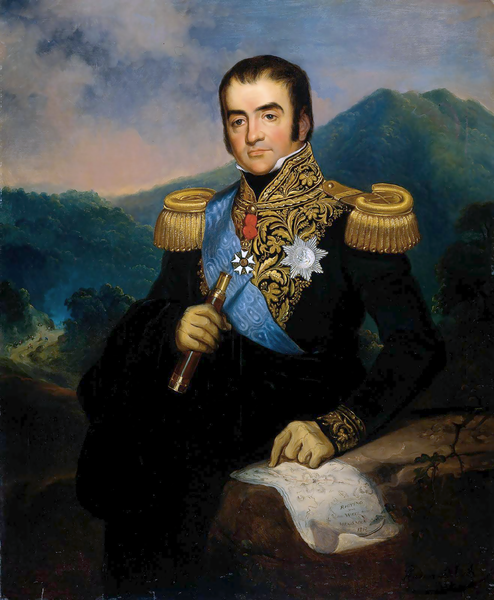 494x600 Herman Willem Daendels/Brutus Salad (xerxes.ihatespartans@gmail.com) Leader of the Patriottes faction outside of the Netherlands, he seeks the overthrow and end of the autocratic Dutch Republic and the institution of a true republic in the region. To this end, he has cast his lot in with the French. 420x600 Marquis de Condorcet/Diplomaticus A leading thinker in an informal but increasingly solid intellectual and scientific movement, whose members are commonly called “Les Philosophes”. A scholar, theoretician, and philosopher. 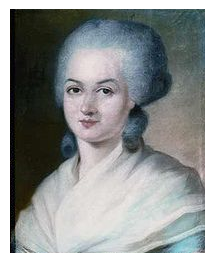 216x268 Marie Gouze/Maxico Roberto (maximo . roboto on Gchat) Although initially in support of the Revolution, Marie Gouze was disenchanted when she learned women would not be allowed to participate. She is an influential writer in Paris but extremely controversial.  220x272 Charles Maurice de Talleyrand-Périgord/Spirit Tree (bdralmynac at gmail dot corn) A cunning French diplomat and, some say, an influential figure in the developing French political scene. Louis Philippe, “Citoyen Egalité”/vacant Former Orleanist King and President of France, narrowly lost his reelection. =Stats= 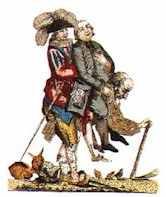 Agriculture: Undercapitalized with below average average crop yields. Poor harvests have lead to unfavorable conditions for local markets. Situation was improving, but blockade means France will have to be self-sufficient. Industry:: Mostly textiles, with some mining and metalworking. Stabilized somewhat by ample subsidies and an influx of cotton from America. American markets also proving quite amenable to French manufactures, but British blockade threatening to rob this avenue from France. New projects in the Rhine completed, bringing in massive immigration and industrializing the region. Food: Mild famine has resulted in a massive spike in prices but agricultural investments have resulted in a minor improvement in diet. Brittany is struggling heavily but surviving. Nobility and bourgeois eat well. Diet quality in Paris is on the decline. Labor: No restrictions on working hours or hiring practices Education: 47% literacy for men, 35% for women. Based on the apprenticeship system, with Catholic seminaries being used as an alternative for poor families. Some seminaries expanding admission thanks to education budget increases. Private tutors used for nobility. Public Health: Major cities contain small sewers but require updated water systems. Health care largely provided by the clergy, who now receive funds from the state for that purpose. Crime: Approximately 3,660 officers are used to defend strategic sites like the palace, royal mint and major roadways. Well-organized and trained but corrupt. Trade: Forced to turn to conquest as a means to secure the flow of goods into France. Colonies: Mostly in the Caribbean and India, holdovers from numerous unsuccessful wars against Britain. Most are occupied by the British, with the notable exception of the fairly prosperous seized colony of Gaule. Finance: Assignats have largely replaced the livre as the de facto currency of France. Inflation steadily increasing thanks to Robespierre’s budget and sovereign default. Urbanization: Less than a quarter live in cities. Population growth primarily in rural areas. Religion: Catholics dominate political life but Calvinists and Jews are tolerated. The Civil Constitution of the Clergy makes priests direct employees of the state. Ethnic Groups: 53% French, 46% Occitan, 1% Corsican. Official toleration of local languages but increasing momentum towards French as the sole language of the state. =Budget= Due to the poor economic policies of the monarchy, the treasury of France was bankrupt by the time the Constitution was enacted. In order to ensure economic stability, church property was forcibly seized and used as a standard for the currency. Despite the decrease in royal power, a large portion of the yearly budget was used to build and maintain the property of the nobility. As a consequence of underfunding the police and low accountability among tax collectors, Revolutionary France often had difficulties collecting taxes. quote:Budget Kentoc'h mervet eget am zoatran- A  Country: Ar Rouantelezh Breizh (The Kingdom of Brittany), established 8 June 1793 by proclamation of the Royal Council of Brittany. Foreign Relations: Excellent relations with the United Kingdom, great relations with the Papal States, good relations with Prince-Bishopric of Liège, neutral relations with the United States, at war with the French Republic Population: 1,680,000 Year: Autumn 1793 (turns represent 3 month seasonal cycles) Metropolitan Brittany 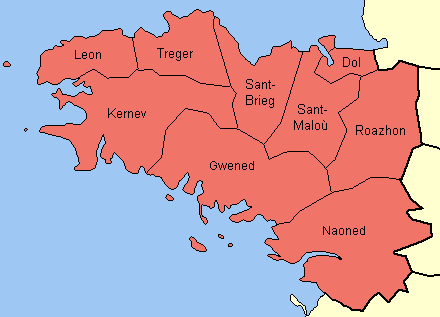 440x317 =Economy= =Economic Sectors= Agriculture: 88% Manufacturing: 12% Trade: 0% Growth Rate: 2% = Unemployment: 15% =Government=  320x213 Popularity: Good System: Feudal Elective Kingdom 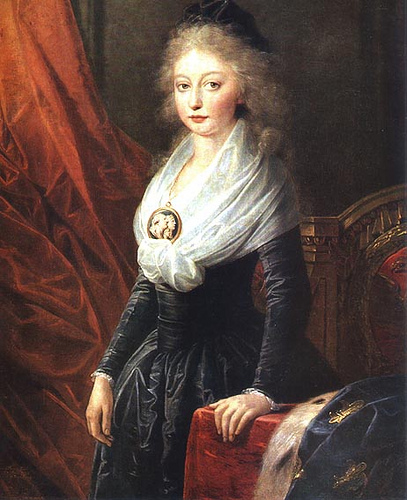 407x500 Queen: Mari Tereza I ar Vourboned/Gantolandon
Laws of Succession: Agnatic-Cognatic Elective Heir Apparent: To be decided. Noble Assembly: 145 Seats (120 Marians, 20 Independents) Popularity: Mediocre Steward of the Queen: Charles Armand Tuffin, marquis de la Rouerie/Gorgo Primus Elections: No elections held. Suffrage: None at the national level. Nobles cast votes for King upon the death of the preceding monarch. =Royal Council of Brittany= The Royal Council of Brittany was created on 5 November 1792 with the goal of improving administration within Brittany. Although technically membership is determined by the Duke of Brittany, in practice the Steward of the King is responsible for the body and its upkeep. Veur Chancellor: Charles Armand Tuffin, marquis de la Rouerie/Gorgo Primus The Veur Chancellor’s duties are strongly based off the position of Foreign Minister in the French government. He is charged with diplomacy, foreign affairs and maintaining national morale. As a newly established nation, Brittany’s primary goal will be to gain recognition by other states. 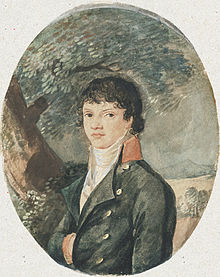 220x277 Veur Marshal: Aimé Picquet du Boisguy/Rogue The Veur Marshal represents a revival of ancient feudal tradition. With a focus on military matters and war, the marshal’s responsibilities are all that stand between independence and annexation. 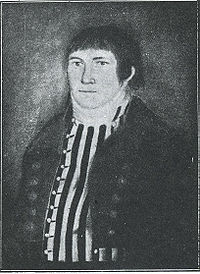 200x274 Veur Steward: Auguste de Bonteville Hay/TaoJones Unlike France, Brittany has few economic woes. It is a new nation, with bright economic prospects ahead of it. The Steward determines the budget, oversees tax collection and ensures the authorized use of funds. Veur Spymaster: Auguste de Bonteville Hay/TaoJones In most states, the ‘secret service’ does not constitute an official part of the government and exists in a legal grey area. Not so in Brittany. Overseer of all domestic and foreign intelligence, the spymaster serves as the official eyes and ears of the government.  173x250 Veur Chaplain: Titular Archbishop Antoine-Éléonor-Léon Leclerc de Juigné/Cozy Hemp Mines (Cozyhempmines at googlemail) The Chaplain is responsible for matters of religion and culture within Brittany and is the Catholic Church’s foremost representative in Brittany. The position is an interesting one in that it is not subject to government regulation and appointment appertains solely to the Pope himself. Other Important Individuals and Groups: =Stats=  Agriculture: Poor, farm focused economy. Slow improvement because of foreign imports and exports Industry: Exclusively textiles. It is not clear whether Brittany qualifies for the Free Trade Compact with the US, as such rates of sale tends to vary drastically Food: Although food is scarce, the situation is improving thanks to British and Ottoman aid as well as government food programs. Labor: No restrictions on working hours or hiring practices Education: 39% literacy for men, 28% for women. Based on the apprenticeship system, with Catholic seminaries being used as an alternative for poor families. Private tutors used for nobility. Public Health: Major cities contain small sewers but require updated water systems. Crime: Underfunded system in place for crime and punishment. Remnants of the old French system still in place but barely functioning Trade: Limited trade with foreign nations thanks to ineffective blockade Colonies: No interest in colonies, especially in a time of crisis. Finance: Lack of trust in new currency, the Breton florin, exclusively minted in Breton provincial capitals. Urbanization: Less than a fifth live in cities. Population growth primarily in rural areas. Religion: Catholics dominate political life. Religion reasserting authority under Breton homerule. Ethnic Groups: Mostly Breton, with Frenchmen clustered on the border. Sporadic attacks occurring on French speakers have finally stopped. =Military= Army of All Brittany General: Charles Armand Tuffin, marquis de la Rouerie/Gorgo Primus Forces: 17580 soldiers, 300 cavaliers Organization: None Situation: Good morale, decently trained. About half of the men have arms fitting their duties. Sharpshooter regiment has experimental new rifles. =Budget= pre:BUDGET PROPOSAL Brittany, Summer 1793 =ECONOMIC DATA= Tax Efficiency: Extremely Low Noble Tax Rate: 20% 4 credits expected Bourgeois Tax Rate: 20% 3 credits expected Petit-Bourgeois tax rate: 20% 1 credit expected Working Poor tax rate: 0 0 credits expected Land Tax: 25% 5 credits expected Tariffs: 10% 3 credits expected Debt Total Debts 33 Debt to Bank of England 33 [note: interest deferred] Other Economic Indicators Interest Rate (market) 4% Inflation 5.8% Debt growth this turn +6 =BALANCE SHEET= Revenues Expenditures Source Amount Item Spent Gronk Taxation 13 Manufacturing 2 1 Grant from Papacy 2 Agriculture 4 4 Haitian Sugar Tariff 3 Infrastructure 2 6 Minting 0 Transportation 2 2 Culture 1 2 Police 4 4 Army 4 4 Navy 0 3 Intelligence 2 2 Courts 1 1 Clergy 1 1 Education 0 0 Healthcare 0 0 Colonies 0 0 Food Relief 1 1 Subtotal of Revenues 18 Subtotal of Expenditures 24 (Loan from England) 6 Deficit 6 Total 0
|
| # ? Dec 10, 2012 06:41 |
|
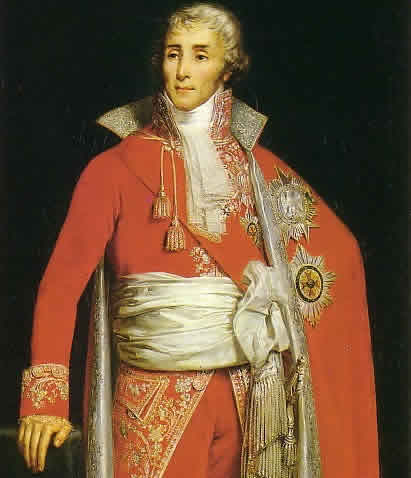 411x478 President Joseph Fouche President fouche outside the gates of roux cathedral posted:Roux, i am coming to you, i am extending myself to you.
|
| # ? Dec 10, 2012 07:14 |
|
"...Free at last! The bonds that have tied us to them are now severed. They will recognise the inevitable or face the fury of our new-found power..." Collected works of the Teacher, volume III: Transformation
|
| # ? Dec 10, 2012 07:16 |
|
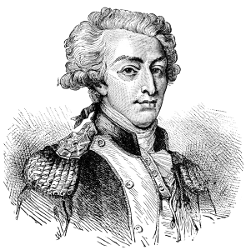 Marquis de Lafayette, Citizen of Virginia Oh my beloved France! Home lies below the guillotine's dangling blade. The blood of innocents will flow to appease the deranged perversions of the radicals who have hijacked our revolution. I fought only for true victory, a secure and free France. I have failed. Now I am condemned to watch the destruction of my nation from afar. Virginia is a good place - My friend Thomas Jefferson has already offered me a position in the Militia. The betrayals, whispers and mobs of Paris are a world away from life here. Maybe fate will one day drag me back... but for now, a quieter existence in America is my intention. Gonna help GM for awhile! Lafayette is out
|
| # ? Dec 10, 2012 07:35 |
|
a bad enough dude posted:
Au revoir Lafayette.
|
| # ? Dec 10, 2012 07:40 |
|
Seven layers above the Sphere of Jupiter and its volcanic forges, something flaxen strides past the celestial threshold and enters the Empyrean Heaven. The Tarshikim are thrown into disarray as the Ophanim leave their place in the Choir to facilitate, as the Areopagite would put it, the "supermundane ascent up the steep". Someone has come to claim Tuba Veneris, and therefore dictate the movements of the lesser Dominions. The Gate of Tartarus below Paris still moans and writhes, but with the Trumpet of Venus what was a mere lullaby on Earth will turn into the roar of Moses' Triumph in heaven. It will sound strong and true, placing a Great Seal over the Great Divide. As the chains of Azael erode and break in anticipation of the Last Judgement, so does this friend of Robinspear and Duck Dorlins ascend through the Heavenly Spheres.  ????????????????????????? The Consecrated Little Book of Black Venus: Message from the Black Star posted:Est VENUS a Superis mihi datum nomen in Astris
|
| # ? Dec 10, 2012 08:25 |
|
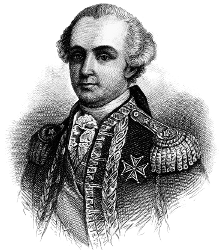 France needs me! I have business to finish in Haiti, but the people of my beloved homeland have showed that they know I was acting only in the interest of the now-deceased Louis XVI, that I acted in loyalty. I shouldn't be spending my golden years toiling in Haiti, although they are a good people and I will continue to help them. I should be in France, helping my countrymen. Pardon me, and I promise never to take up arms against the government again! Pardon me, and: 
|
| # ? Dec 10, 2012 20:34 |
|
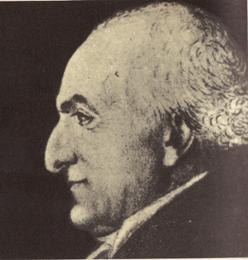 248x260 A certain notorious detective that my friend and ally Lacombe hired has revealed to me some very interesting information, I deem it worthwhile of release to the people of France and Picardie. -The Demonologist was hired by von Bachmann -He hired the assassins responsible for the attempt on Robespierre -He has a secret group under him, that was active in the sewers until recently -He was responsible for the American Embassy and Jacobin Club bombings -He was hired by the president to investigate those, and framed the Enragés (which turned out to be unnecessary, as they went and bombed the National Assembly) -Pretty much anything involving sulfur involves him, including people disappearing in Paris -It is uncertain who he's aligned to now -The old French president and the demonologist also pressured the Minister of Justice to release Robespierre's assassin a few turns ago I hope this settles matters once and for all. Payment will be with you soon good sir.
|
| # ? Dec 10, 2012 21:32 |
|
 411x478 President Joseph Fouche -=Reshuffled Cabinet=- Minster of the interior- Robespierre / Sniper4625 Minister of Foreign Affairs- Charles Maurice de Talleyrand-Périgord / SpiritBrii (pending confirmation) Minister of Justice- Marguerite-Louis-François Duport-Dutertre / ZearothK Minister of War- Général Joseph Marie Servan de Gerbey/ A RICH WHITE MAN(Mood) Minister of the Marine- Joachim Murat / stalin-chan Minister of Finance- This position steps on the acquisition committee's toes, I and the minister of the interior will personally check the budget. Minister of the Arts and Culture - Olympe de Gouges Although having no official powers, we grant this symbolic ministry to olympe de gouges, a tireless artist and champion of the people even if we do not see eye to eye on everything. France has always been a leader in the arts let that light not fade even in these troubled times. -------------------------------- Citizen Charles hector is free to come home, when his business in Haiti is done. He is pardoned.
|
| # ? Dec 10, 2012 21:44 |
|
Stalingrad posted:
 Just to clarify on this, he is aligned with Hell at the moment. Also, President Louis-Philipe never asked me to release Robespierre assassin. Our friend the Daemonologist and von Bachmann did -and a similar request was sent to Lafayette over the Swiss - and, despite the ambiguity of your statement the men are still under guard. I invite any nay-sayers to come to the prison and see them with your very eyes. I heartily approve of President Foiche's choice of cabinet, and look forward to working with my colleagues for the future of France, and welcome Mademoiselle Olympe amongst our ranks, may she be the first of many women to guide our nation. Marguerite-Louis-François Duport-Dutertre Ministre de la Justice Tiger-Emperor of the Great Underground Empire
|
| # ? Dec 10, 2012 22:00 |
|
Citizen Sade Having only lost the presidential election by a mere .6%, I find it strange that you did not consider asking me to take part in the government, one would think that the people of France who took the trouble of voting have some strong desire to see me involved in government. I would also note that the law currently forbids members of the legislature from serving in the cabinet, is your first act as President one that will break the law? If so I applaud your bravado, sir! Well done! I ask to be made Maréchal of France, and I shall lead the armies of France to unheard of victories! The Army of Hell shall strike out at the Breton dogs this very summer, and then I shall strike out against the Pope of Dogs who considers elevating such an ignoble people to the status of a Kingdom, tear him from St. Peter's Palace, and parade him nude down the streets of Paris, until finally allowing him the honor of a simple retirement bathing whores and lepers for the rest of his day as did his hero.
|
| # ? Dec 10, 2012 22:55 |
|
Fall Sick and Die posted:Citizen Sade Because you aren't in the IRC and i can't talk to you, get your ass online FSAD. I can't negotiate your position until you do. and yeah a military position is a fine fit for you. Also the pope didn't crown the bretons, lol
|
| # ? Dec 10, 2012 23:04 |
|
Fall Sick and Die posted:Citizen Sade 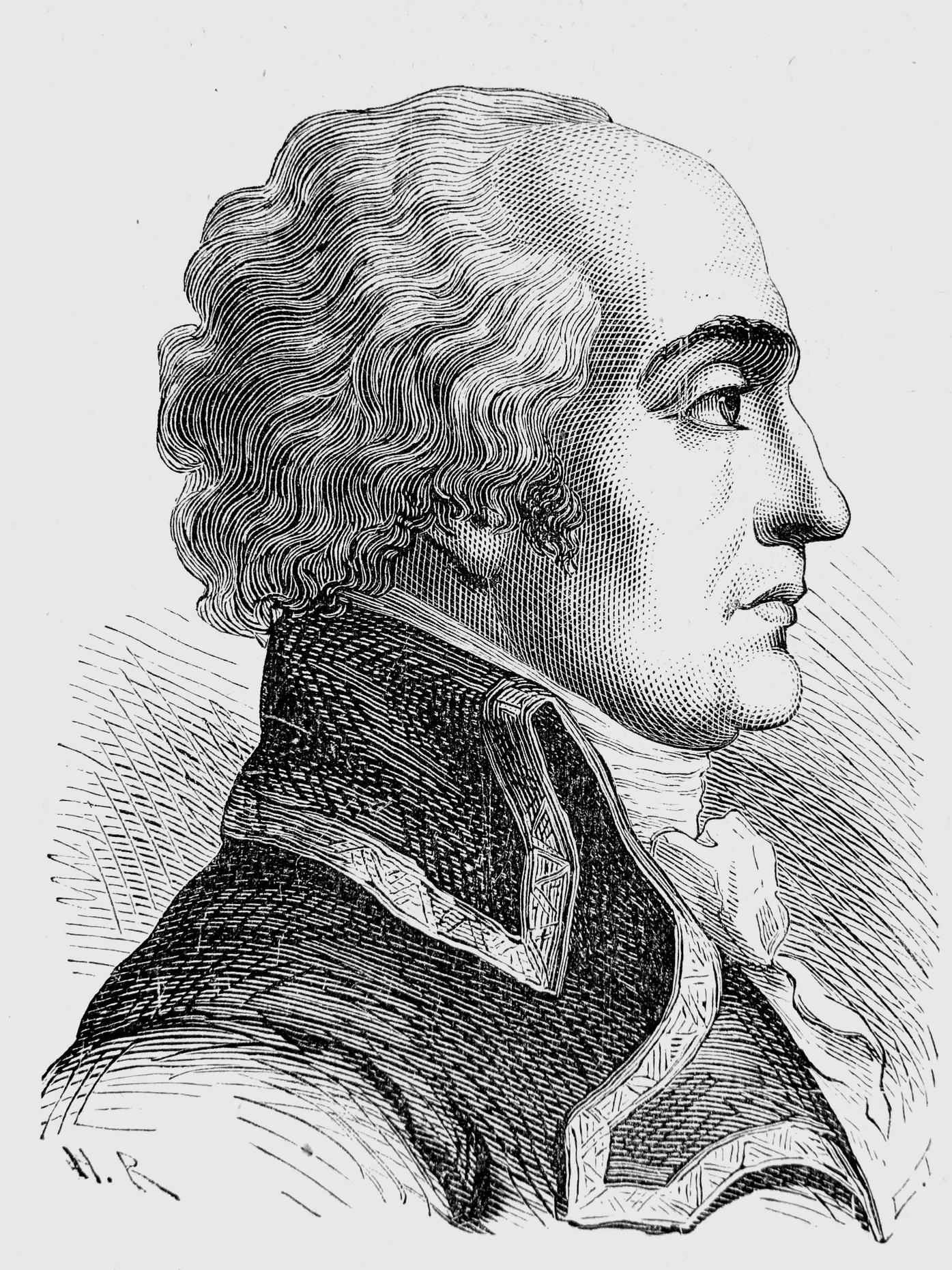 1395x1860 Général Joseph Marie Servan de Gerbey, Minister of War, Commander of l’Armée du Centre, Patriot While I am not fundamentally opposed to your appointment as Marechal of France, I would like to first ask you to answer for your recent actions. Actions which a man somewhat more hasty than myself might take as treason; namely, the aid given to the traitor Lafayette in his unlawful revolt against Paris, and your attacking of a French army. Furthermore, I would suggest that the position go to an individual with experience in the French military; experience which my dear Citizen Sade unfortunately lacks.
|
| # ? Dec 10, 2012 23:43 |
|
A RICH WHITE MAN posted:
 Joachim Murat, Minister of the Marine, Admiral of the French Navy. I do concur, however I must say his passion towards ending the Breton rebellion is inspiring.
|
| # ? Dec 11, 2012 00:02 |
|
A RICH WHITE MAN posted:
 *clears throat*
|
| # ? Dec 11, 2012 00:44 |
|
I'll take Jean Bernadotte, and take command of the Armies of the Rhine, to fill the absence.
|
| # ? Dec 11, 2012 01:01 |
|
 411x478 President Joseph Fouche Annexation terms of the enrage collective posted:Autonomy for Picardie, with current institutions of the collective intact, but in union with the French State. (50% of picardes local taxes will go to france) André Masséna is confirmed military governor of belgium (because really, he already is.) tatankatonk posted:*clears throat* My aplogies citizen hector, you must understand why i say. No. JosefStalinator posted:I'll take Jean Bernadotte, and take command of the Armies of the Rhine, to fill the absence. Excellent, i hope to speak with you soon.
|
| # ? Dec 11, 2012 01:29 |
|
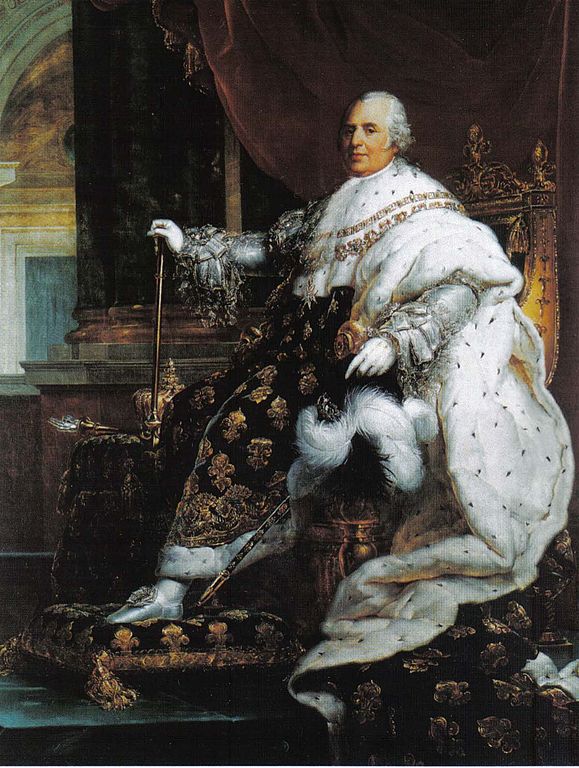 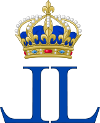   By the Grace of God, Most Christian King of France and Navarre; Count of Provence, Forcalquier and the lands adjacent; Count of Viennois, of Valentinois and of Diois; Defender of the Faith; Breton Elector The time for instability in our realm must come to an end. There is no time for us to wait for an absent king, who by now we must presume is dead. This is why we have decided to assume control of the throne. This was not done out of any sense of joy or pride, but out sense of duty and responsibility. It brings us no happiness to take this throne which Louis XVI and XVII occupied until recently. We have chosen to take the throne not because of any personal ambition, but because the throne needs Louis XVIII. This is something which must be done for the good of the realm. We would like to thank all of your for your loyalty and support through these tough times. The road ahead will be tough, and only God knows what lies in front of us. Whatever challenges we face, we will do our best to overcome. There is no knowing what the future looks like, but it is our duty to do all we can to protect France and Brittany. With God and all good Catholics of France and Brittany on our side, we will restore the Monarchy and all its authority! Under our rule, we will put and end to the petty tyranny of the republic! Order shall be restored, and all shall be well once again! We will not rest until the criminals of the republic have faced justice!
|
| # ? Dec 11, 2012 17:18 |
|
 Turn is due Thursday, 6:00 PM EST. We should be getting it up sooner than the last couple of times, so help us out! Turn is due Thursday, 6:00 PM EST. We should be getting it up sooner than the last couple of times, so help us out! 
|
| # ? Dec 11, 2012 18:39 |
|
 I am honored to have the confidence of Monsieur President, and will be happy to serve as Minister of the Interior. There is much to be done, and not much time to do it! My agenda: 1. Industrialization! The masses of France need work, and our brave men on the front need arms and supplies. While the work of the Acquisition Committee has been admirable in its zeal, we can no longer rely on existing supplies - we must begin to make! The answer is obvious - great workshops, under the purview of the state, will be established to equip our fighting men with anything they may need. 2. Justice! In conjunction with the Ministry of Justice and the Revolutionary Tribunal, we shall begin a proper removal of the remaining royalist elements within our Republic. 3. Science! The Philosophés are to receive sponsorship of the state, allowing these men of science to dream up greater inventions and marvels than ever before! More to come, mon amis, but there is much work to be done now.
|
| # ? Dec 11, 2012 19:10 |
|
sniper4625 posted:1. Industrialization! The masses of France need work, and our brave men on the front need arms and supplies. While the work of the Acquisition Committee has been admirable in its zeal, we can no longer rely on existing supplies - we must begin to make! The answer is obvious - great workshops, under the purview of the state, will be established to equip our fighting men with anything they may need.  411x478 President Joseph Fouche I think state owned industry is a great idea that will have large repercussions on this and all future wars. Not needing to seize the peoples private assets as heavily during wartime is a good step towards protecting their rights in times of troubles like these. I understand the necessity, but it still pains me. During peace times we can demilitarize our workhouses giving the state much needed funds and the people much needed goods.
|
| # ? Dec 11, 2012 19:32 |
|
 411x478 President Joseph Fouche To keep the command structure of the nation flat De Gerbey will fill the roles of both marshal and minister of war. In addition with the army of the center in De Gerbey's command, and in light of Lafayette's actions we are tying command of the revolutionary guard directly to the office of president to serve as an urban cohort in the defense of Paris. As for citizen De Sade, his position in this administration remains pending until such a time as i have a chance to correspond with him.
|
| # ? Dec 12, 2012 06:48 |
|
 I'm pretty sure De Sade should go to fucking jail? Unless murder stopped being a crime...?
|
| # ? Dec 12, 2012 06:58 |
|
 1395x1860 Général Joseph Marie Servan de Gerbey, Minister of War, Marechal of France, Commander of l’Armée du Centre, Patriot I await Citizen Sade's response to the charges levied against him, and invite him to come to Paris so that he might clear his name.
|
| # ? Dec 12, 2012 07:02 |
|
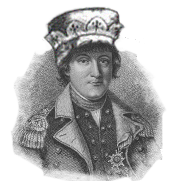 'Duke Presumptive' Charles Armand Tuffin, marquis de la Rouerie Steward of the Queen for the Kingdom of Breizh/Brittany for Mari Tereza I Charleza ar Vourboned Open Address to the Breton Nation and her Allies from Cadoudal Square posted:People of Brittany! Today is a solemn occasion; we have lost a good friend and hero of the Nation, and we have earned in blood the title of Kingdom.
|
| # ? Dec 12, 2012 10:12 |
|
 411x478 President Joseph Fouche Citizen De Sade is granted command of the army of the Pyrenees, and is ordered to take them into Spain, he is not under any circumstances to engage any Breton soldiers or conduct any activities in Brittany while in command of an army of the republic. ---------------------- Gorgo Primus posted:We are the forces of Tradition and Catholicism, and we shall never be swayed by radical quackery to abandon our loyalties to ourselves, our allies, or our Pope in Rome. Those who seek to find a haven for radical ambitions against God's Great Chain of Being shall always be disappointed here - in this land of old. Dear monsieur Tuffin, your speech was very moving, but if my knowledge of catholic tradition is correct, only the pope can grant a crown, and he seems somewhat indisposed at the moment. Gantolandon posted:we shall celebrate this very day as our own Day of Independence each year Aren't we being hasty mademoiselle?
|
| # ? Dec 12, 2012 11:25 |
|
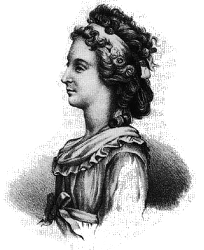 Mari Tereza I Dear Bretons, I am very proud of you. We all stood up to the enemy who was determined to destroy us, who would not flinch before slaughtering innocent women and children, who does not care about the life of his people and was able to flood us with a wave of forced conscripts. We have suffered greatly and the war is far from being over, but it was an important step. Brittany shown to the entire world that it is no longer a part of France, but something greater. Nothing pleases me more than seeing Brittany asserting itself. From now on, we shall celebrate this very day as our own Day of Independence each year. We shall attend the Mass, then feast and make merry. There is also the matter of expressing proper thanks to the people who made our victory possible. Charles Armand Tuffin is hereby made the Duke of Brittany. From now on, the future rulers of our country will nominate a new Duke, after the old one dies. I wish I could also express my gratitude to Georges Cadoudal, who was not only a great chancellor, but also an irreplaceable friend. If he is alive, he shall be rewarded when he returns. If not, we will find him, mourn and bury him as it fits the man of his moral integrity. The future may look bleak, but we have already shown we are not easy to break. Mari Tereza I, by the Grace of God, Queen of Brittany.
|
| # ? Dec 12, 2012 11:50 |
|
 Duke Charles Armand Tuffin, marquis de la Rouerie Duke of the Kingdom of Breizh/Brittany under Queen Mari Tereza I Charleza ar Vourboned I accept this honorable appointment with the greatest humility and thanks. God has truly been kind to our people this day; especially in His gift to our Nation of a Queen as kind and just as Mari I. It is with great pride in our Nation, Kingdom, and noble Queen, that I hereby retire the old temporary appointment of 'Steward of the Duchess' and take up for myself the now institutionalized role as Duke of Brittany. May I do justice to your faith in me. Hopefully the future remains as bright as our illustrious past. Happy Independence Day! An Open Response to French President Fouche posted:Have you no shame? You claim you are moved by my speech, but it seems the movement you refer to is the appointment of a known madman and genocidal murderer with a grudge against my people to the command of an army - which you full well know will at once be sent against us - and a snide remark as to the crisis our beloved Pope in Rome now faces at the hands of your armies.
|
| # ? Dec 12, 2012 12:31 |
|
 411x478 President Joseph Fouche From the office of joseph fouche to tuffin quote:Have you no shame? You claim you are moved by my speech, but it seems the movement you refer to is the appointment of a known madman and genocidal murderer with a grudge against my people to the command of an army - which you full know will at once be sent against us - and a snide remark as to the crisis our beloved Pope in Rome now faces at the hands of your army. You must serve monarchy as your beliefs direct you to, and i must serve democracy. Citizen De Sade Nearly defeated me in the presidential race, and i acceded to your personal wishes need i remind you not to make him marshal, however i do need generals and he wished a military post which seems suited to his unique talents. He will march upon the Spanish and not the Bretons, if he does otherwise i shall march with the republican guard myself to stop him. quote:Were you truly moved you would recognize our government and our Independence posthaste, and drop all claims to us or our people. Ah, if only i were a king, but gladly i am not. Perhaps if you were a republic and not a monarchy? You already vote for your leaders, just let the peasants vote. quote:God knows what you would grant the Butcher Lafayette if he was here; perhaps you'd pin a medal to his chest and give him the entire navy with the command to please not use it to blockade Brittany again. Lafayette attempted a coup upon the legitimate government of Paris. quote:Also, I am Duke Tuffin - not monsieur Tuffin. I did not go to Monarchy School for nothing. I had the courtesy to use your proper title, I'd suggest you do the same in the future. Oh very well duke tuffin, but only in personal correspondences like this one. Don't let it go to your head.
|
| # ? Dec 12, 2012 13:06 |
|
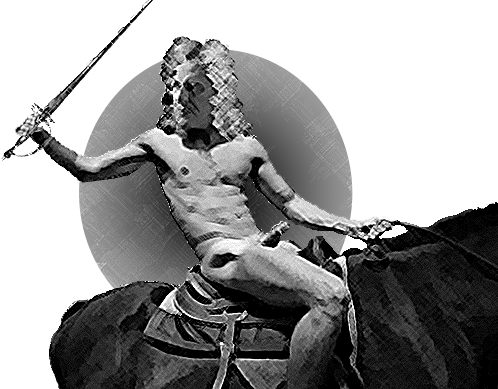 Citizen de Sade I accept the appointment as Commander of the Pyrenees Army, so long as my loyal Cambions can accompany me, and so long as the Minister of Defense will bear me no ill will nor prejudice himself against the men under my command. I was attempting to bring the Armee du Centre to Paris to prevent exactly what Lafayette undertook, but the troops chose to follow him rather than me. In the chaos of the battlefield, I charged when I assumed that his army was moving to bring a coup to bear in Paris. My every intention was to protect the new Republican leadership, and I regret the loss of life, and place the blame on Lafayette as much as anyone else. I pledge as a Liberated man my honest and true intent to defend this Republic and the government chosen by its people. A victory of one vote or a million is still the will of free men! As for Spain, with my Cambions beside me, we shall march... crossing the Pyrenees as Hannibal himself once did. If the Minister of Defense believes for any reason I am not doing my utmost to end the Spanish threat to France, he is welcome to get behind me and push! Let him ride me, nonstop, until I can not bear the pressure and spew forth the fervor of the revolution across Iberia! Spaniards, if you would be republicans, there is but one more thing... rise up against your masters and live your lives in true freedom for the first time!
|
| # ? Dec 12, 2012 13:37 |
|
 My proposed budget. Our recent conquests allow us to reduce minting immeasurably, while still allowing for a necessary increase to our manufacturing subsidies, vital for our new industrialization plans. quote:Budget If the Pope wants proper funding for the Catholic churches of France, I invite him to sent us funding as he does the Bretons. The Bretons who, last I checked, had their masses in the lay tongue and crowned a Queen without papal dispensation. Also, can he send a new Archbishop? Our current one has gone off to be a rebel. Thank you.
|
| # ? Dec 12, 2012 15:36 |
|
Gorgo Primus posted:
Archbishop Antoine-Éléonor-Léon Leclerc de Juigné  Long Live Duke Armand Tuffin of Brittany and her Highness, Queen Mari Tereza I Charleza ar Vourbone. May the Lord bless the Kingdom of Brittany, on this, our Day of Independence.
|
| # ? Dec 12, 2012 16:01 |
|
 President de Sade People of France, listen closely. There is a poisonous element among you. And unfortunately, not knowing better, we have allowed him to take his place as President of France, not knowing the deceptive nature of the snake, thinking for a moment that his status as a native of Brittany was merely a trick of nature, and would not affect his position as a legislator or a French citizen. I am forced to say, send this snake back to Brittany where he was hatched! For too long Paris has been mired in betrayal and sinister plots, let them be exposed to the light of day! 1.) Sincere evidence of widespread voting malfeasance was presented to me. I am the rightful winner of the election, and will be installed as President. I am presenting my own cabinet appointments and confirming certain generals in their positions. Out of honor for the secrecy with which it was told to me, I can not rightfully say who revealed to me the extent of the campaign to disenfranchise my votes, however it was enough to tip the election out of my favor or I would not be raising my voice now. Should this man wish to come forward however, I would appreciate it greatly, but his life is his own, nor is his honor to be questioned, to each man his own freedom. 2.) The Usurper himself has presented to me his proposed treaty for ending the war with Britain and Brittany both. I will allow the people of France to see what we have to gain from this 'treaty', or as I would call it, a complete surrender. quote:Treaty of Fart City (1792 butts) Not only does this treaty force us to cede Brittany as an armed camp to the British on our very doorstep, but we must give up our rightful freeing of Wallonia, Savoy, and any other portion of the Greater French Nation which rightfully belongs to us? We reserve the 'right' to station troops in our own nation?! Let us thank the government for standing up to the British! What treaty shall we see with the Prussians, with the Austrians, if this is what they will give up to the British who have not won a single battle against us?! 3.) The President is currently planning a massive purge of General Gerbey's enemies from the military as they further centralize power. During a time of war, they put revenge above patriotism! Examine this correspondence between myself and the president during our negotiation for my position. An Inelegant Correspondence posted:[23:34] <Monsieur le President> italy is i don't fucking know. Unlike Generals Lafayette or Gerbey, Générals André Masséna and Michel Ney have won the only victories to France's name during this sorry campaign! Yet because General Ney revealed General Gerbey's betrayal, and because General Massena is not a radical of their stripe, they will turn them loose to the wolves? I say non! The heroes of France have shed the blood of Frenchmen in conquest! Who is this Breton to give it up so callously, and not only that, but to destroy the lives and careers of the men who won it? 4.) General Gerbey is to be made Minister of War, Marechal of France, AND General of the Armee du Centre, was this the goal of our Republic, so distrustful of Kings and their centralization of power? Here is my proposed cabinet, I have refrained from appointing anyone in the current government not because I distrust them or have no confidence in their abilities, but rather to prevent them from being hurt. Should they wish to declare for me, I would obviously reconsider some of my appointments. quote:Minster of the Interior - Maximilien de Robespierre/sniper4625 I call upon all true Republicans, do not give up the dream of government by Man, and not by the whims of the powerful and corrupt. Let us not trade Monarchy for an Oligarchy or a 'Republic' such as Venice or Genoa, where those powerful and rich arrange such matters as 'voting' for the benefit of themselves, turning what should be an affirmation of the freedom of every man into a farce that degrades him further. Armies of France, I promised you victory, now I promise you only the bitter taste of the blood of our fellow Frenchmen, but the choice lies with you. Refuse the orders of the Usurper and his viper Gerbey!
|
| # ? Dec 12, 2012 16:50 |
|
 A Republic founded on fraud and injustice is no Republic at all! I cannot support an illegitimate government, not if we wish for the Republic to mean anything at all. Furthermore, it is clear now that Gerberey is a mad dog intent on seizing power at all costs - I had hoped that the victory of his puppet Fouche would have sated his lust for dominance, but now he means to purge our armies of victorious generals? I renounce this, I reject this, and I can never support this. De Sade may not be a paragon of moral virtue, but he means what he says. Vivé la Republique!
|
| # ? Dec 12, 2012 17:01 |
|
 419x523 Général Michel Ney, commander of l’Armée des Alpes This is distressing news. More than supposed President Fouche's duplicity and ideological blindness, I am most offended by his ignorance. I did not march into Italy on my own, on some quest for private glory. I was ordered, by the legitimate government of France and the previous Minister of War General Lafayette to enter Italy. It was an attempt to distract the Austrians and prevent them from attacking our nation - and it has succeeded! While I am no fan of President de Sade's personal proclivities, I must side with him and accept his appointment as Marechal of France. Citizen Fouche has stolen the election and plans to needlessly sell our countries to all its enemies.
|
| # ? Dec 12, 2012 17:03 |
|
 Fuck no, I'm not serving in your shit-ass government, chumpo.
|
| # ? Dec 12, 2012 17:17 |
|
 A worn letter sent from across the Atlantic to a Parisian newspaper Let it be known that my supposed "coup" against the Republic I love so dearly was only a patriotic attempt to remove an illegitimate government that had seized power through the duplicity of the conspirators Fouche and de Gerbey. I disagree with De Sade in regards to many things, but it is clear he is the true President of France. Though I fully intend to remain in my "retirement" on my humble Virginian estate, I must express to the people of France the deep joy I felt upon reading this latest news. It is also indeed true that I ordered Général Ney, as was in my capacity as Minister of War, to liberate Italy from the Austrians and their puppets. He has achieved great victories, and this conspiracy to remove him can be seen as nothing more than a naked power play by the Radicals. (I'll avoid gming any of this stuff directly related to this to preserve glorious objectivity!)
|
| # ? Dec 12, 2012 17:24 |
|
 Joachim Murat, Minister of the Marine, Admiral of the French Navy. I have received compelling evidence that proves that Joseph Fouche had committed voter fraud against candidate De Sade. Because of this it appears that the legitimate President of France is the Marquis De Sade. For these reasons I recognize De Sade as the true President of France. I request that the Minister of Justice open a formal investigation into the alleged crimes of Joseph Fouche and his co-conspirators.
|
| # ? Dec 12, 2012 17:49 |









